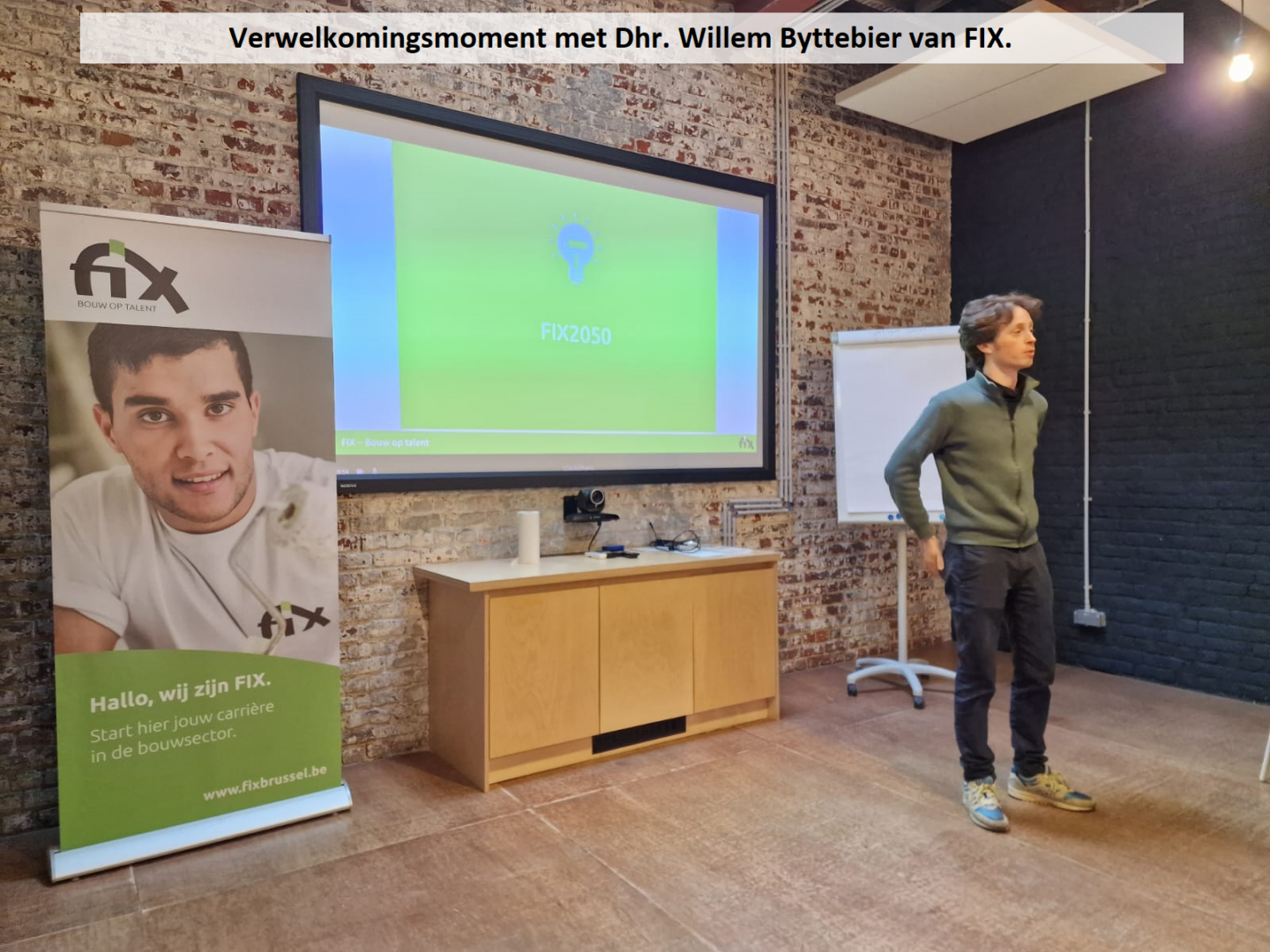KatOBA on its way to climate-neutral schools – FIX2050
On Thursday, February 8, 2024, an intervision moment took place at FIX, an organization that -with the support of the VGC- offers socially responsible solutions for construction and renovation work in Brussels schools and other public infrastructure.
The purpose of this intervision was to exchange ideas, strategies and best practices that can help us achieve the Paris climate goals: a climate-neutral European economy by 2050. Many schools have already started working on this, which means that there is already a lot of expertise in the field that can be shared.
Jelle Gijsegom kicked off with the presentation of the FIX2050 project, in which the objectives were refreshed and the role that FIX can play in the guidance of our school organizations was explained. Consider existing initiatives such as Energiezorg op School, the provision of energy advisors or support with energy monitoring. There was also a look ahead to what else FIX can do in the path to 2050, where the schools (groups) present were allowed to express their needs and wishes.
Lieven Lemmens spoke on behalf of the non-profit organization KatOBA. He gave those present an insight into the OEPC/ESCO process that KatOBA has been preparing in 8 of its schools since 2018. The ESCO partner (Energy Saving Companies) implements energy-saving measures in the KatOBA schools, which pay for themselves through the guaranteed savings on the energy bill to which the ESCO partner is committed.
The ESCO partner takes over the construction, maintenance and management of the (climate) installations of the 8 schools in question from the client for an agreed period, so that it can monitor, adjust and optimize energy savings. We call this contract the OEPC (Maintenance and Energy Performance Contract).
Because an ESCO framework for school didn’t exist at the start of this process (which is important to coordinate with, for example, subsidizing authorities), KatOBA (supported by the VEB – Flemish Energy Company – advocated a pilot project in which 10 school boards in Flanders were selected.
GO / Scholengroep Brussel presented its pedagogical project ‘Energy Race‘, in which Brussels schools compete with each other to save as much energy as possible. This has proven to be a successful approach, because energy savings and awareness of this theme have now increased spectacularly in their school network.
Finally, Walter Borrenbergen of the Flemish Community Commission also took the floor to present the new framework of the subsidy line ‘Energiezorg op school / Energy Care at School‘. Since last year, this call has 2 parts, with the second part allowing schools to install photovoltaic installations during roof renovation and insulation works.
This very interesting exchange ended with a networking moment.
